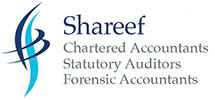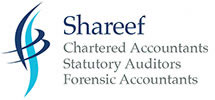
Accounting services for charities and non-profit organisations
Our experience covers a multitude of not-for-profit enterprises from charitable organisations to institutions like clubs and societies. It is critical that those controlling any such entity understand their financial reporting obligations and the advantages that can be gained from presenting this information in the most expedient way. The difference can be significant.
Charities depending on their turnover will require to file either audited accounts, an independent examination or unregistered accounts to the Charity Commission with 10 months from the period. If the charity is incorporated, the same financial statements will also have to filed at Companies House within 9 months from the period end.
We have also dealt with ‘interventions’ from the Charity Commission and advised the charity what controls ought to be in place according to the size of the organisation and to deal with issues to end the intervention.
Currently there are a range of different legal structures available for charities. These can generally be classed as incorporated or unincorporated structures.
Incorporated structures include:
- companies limited by shares
- companies limited by guarantee
- charitable incorporated organisations (CIO)
- limited liability partnerships
- industrial and provident societies (bona fide co-operative)
- industrial and provident societies (community benefit)
- community land trusts
Charitable Incorporated Organisations (CIO)
Charities are increasingly taking advantage of CIO (Charitable Incorporated Organisations) which have the following advantages;
- There will be no dual regulation. CIOs will only need to be registered with the Charity Commission, will come into being once registered with the Charity Commission, will be regulated by the Charity Commission and subject to charity law.
- Trustees of CIOs will benefit from limited liability. This means that their liability in relation to the organisation is limited to the amount they have invested in the CIO / have guaranteed upon the winding up of the organisation. As the CIO is a separate legal entity it will enter into contracts, hold property and employ staff itself. Consequently, it is the organisation rather than the trustees that will be liable for any liabilities arising from such arrangements.
- There is no minimum registration threshold that will apply in relation to the registration of such organisations at the Charity Commission (unlike the current rules for registration of charities which must have a minimum of £5k income before they can apply).
- Every CIO will have a registered charity number. This assists an organisation with fundraising/donations and providing the public with confidence that the charity is appropriately regulated
- The structure is specifically designed for charities.
- No fines will apply for administrative errors.
- CIOs with income of £250,000 or over can produce simpler receipt and payment accounts to the Charity Commission.
The disadvantages are as follows;
- Trustees will have management responsibility and be liable for breaches of trust and for fraudulent/wrongful trading.
- The structure is not suitable for all types of charity – e.g., exempt charities cannot convert to CIO status.
- In practice CIOs may be subject to many of the same regulations as companies.
- The structure is new, untried and untested which may throw up some teething problems for the first few CIOs established.
- The structure is unfamiliar to all, in particular lenders, funders and donors.
- The legislation is not all in one place, making it more difficult to make sure the structure is set up and run-in accordance with the law.
- CIOs only come into being when registered at the Charity Commission. If registration is lost then the charity will fold (unlike companies limited by guarantee which may lose their charitable status but can continue as a company registered with Companies House).
- Delay in getting started – the time it takes to obtain registration is approximately a minimum of 40 working days.
- CIOs are required to register/file returns irrespective of size.
- The structure does not benefit from a register of charges and thereof cannot offer security for borrowing. Floating charges can be offered and in practice can secure charges but there will be no register of this. The Charity Commission does not have the resources to establish a register. This will inevitably create concerns/issues for lenders.



 This website uses both its own and third-party cookies to analyze our services and navigation on our website in order to improve its contents (analytical purposes: measure visits and sources of web traffic). The legal basis is the consent of the user, except in the case of basic cookies, which are essential to navigate this website.
This website uses both its own and third-party cookies to analyze our services and navigation on our website in order to improve its contents (analytical purposes: measure visits and sources of web traffic). The legal basis is the consent of the user, except in the case of basic cookies, which are essential to navigate this website.